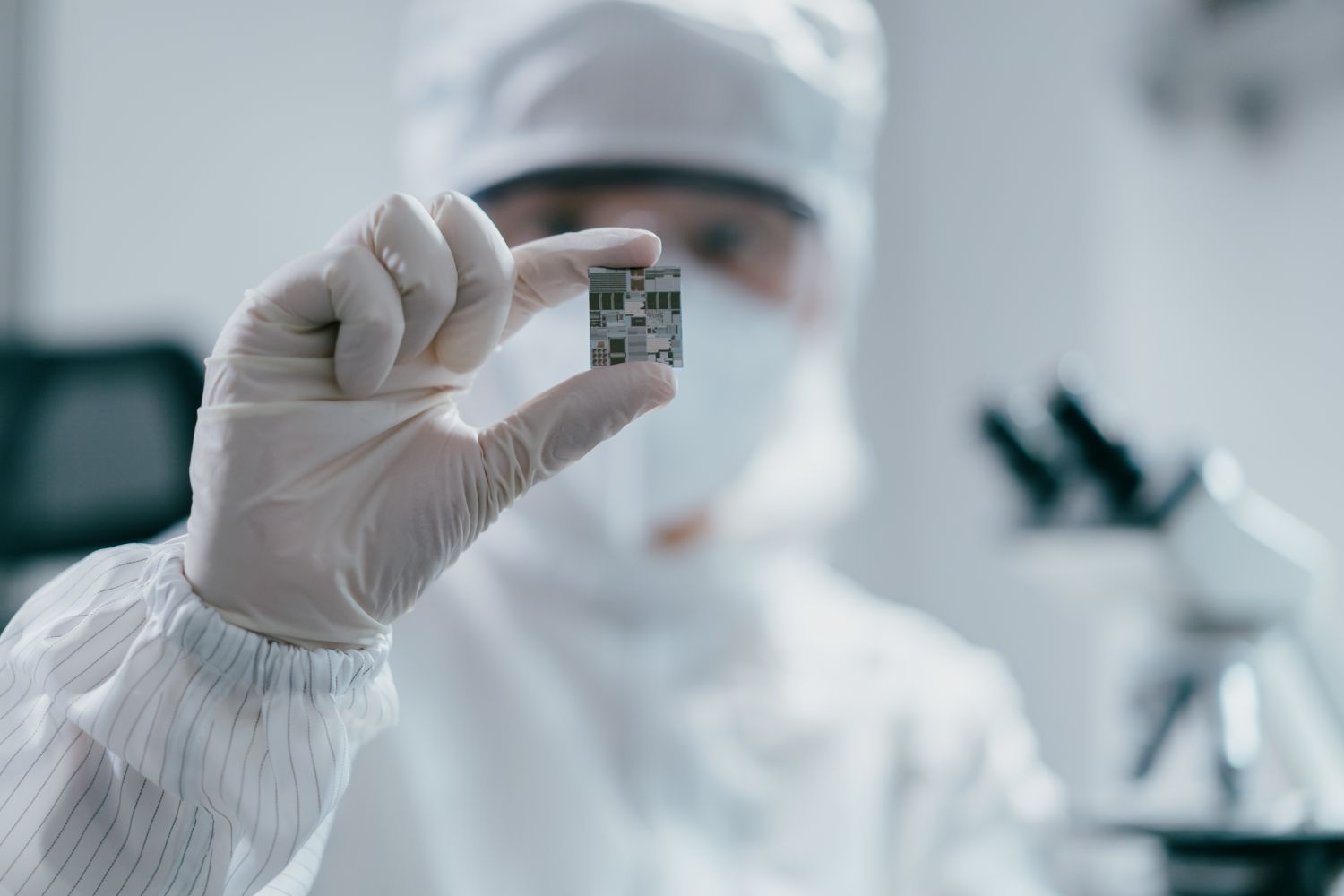beijingwalker
ELITE MEMBER

- Joined
- Nov 4, 2011
- Messages
- 65,191
- Reaction score
- -55
- Country
- Location
Good New For The World: How China's Surprise Chip Advances Could Bring Down Gadget Prices
Competition is keyBy Sascha Brodsky
Senior Tech Reporter
- Macalester College
- Columbia University
Published on September 7, 2023 10:48AM EDT
- Huawei has created an advanced new chip for its latest smartphone.
- Chinese firms are subject to US sanctions, limiting their access to cutting-edge semiconductor technology.
- Competition from Chinese chips could reduce prices.

Inspecting computer chip.
sinology / Getty Images
China is speeding ahead with its chip-making abilities, and US users could benefit from lower prices even though experts are raising national security concerns.
Huawei Technologies, in collaboration with China's leading chip manufacturer SMIC, has developed a cutting-edge 7-nanometer processor for its latest smartphone. The newly released Huawei Mate 60 Pro runs on the newly-developed Kirin 9000s processor.
"The US is heavily reliant on foreign suppliers such as Taiwan for its chips. In this context, if China is able to deliver that, the supply chain will be stabilized with minimal disruptions," Yogesh Choudhary, the CEO of the software development company FieldCircle, told Lifewire in an email interview. "As a result, prices will not fluctuate, and US users will get constant access to products with new technologies at a price they can afford."
Chip Surprise
Both Huawei and SMIC are under US sanctions, which restrict their access to state-of-the-art chipmaking technology and equipment due to concerns about potential assistance to China's military. The launch of the Mate 60 Pro, featuring a 7nm Kirin 9000s chip, indicates progress in China's quest to reduce its dependence on American tech innovations, Dan Hutcheson, vice chair of TechInsights, said in a news release.
"The difficulty of this achievement also shows the resilience of the country's chip technological ability," he added. "At the same time, it is a great geopolitical challenge to the countries who have sought to restrict its access to critical manufacturing technologies. The result may likely be even greater restrictions than what exists today."
Currently, the most cutting-edge chips on the market utilize a 3nm process and are manufactured by Taiwan Semiconductor Manufacturing Co (TSMC). In chip making, the fewer nanometers, the better. However, TSMC's production capabilities are constrained, and Apple has currently booked the company's full manufacturing capacity.
SMIC took about two years to reach 7-nm capability despite the US ban. In comparison, TSMC took three years, and Samsung took five years to achieve a similar level, Long Le, an expert in international business and a lecturer at the Leavey School of Business at Santa Clara University, told Lifewire via email.
"Where I see such an advance helping the US advanced semiconductor industry is when (and if) SMIC decides to sell such its 7-nm to US tech companies who need such chips for their products," he added.
Even though the US has passed a law to develop the capacity to develop such chips with help from TSMC, the US can't compete with the tech manufacturing prowess of China.
Le said he wouldn't be surprised if SMIC is also building the capacity to develop its current form of 7nm and a better version of 7nm for domestic and Western tech companies.
"Even though the US has passed a law to develop the capacity to develop such chips with help from TSMC, the US can't compete with the tech manufacturing prowess of China, especially now that China has the incentive to be the leading developer and supplier of such advanced chips," he added.
Hidden Costs
Chinese chips might lower prices but may come with a hidden cost. Captjur CEO and tech analyst Bob Bilbruck said in an email to Lifewire that if the Chinese chips make their way to the US, it could lead to more espionage by the Chinese government."Although they have allowed many licenses, I think this tide is turning as the political landscape and threat of China becomes more real every day," he added. "These technologies and sectors need to be protected."

Abstract computer chip.
Jason marz / Getty Images
The new chip powering the Huawei phone might be only the beginning for China. The country is reportedly setting up a massive government-supported fund to enhance its semiconductor manufacturing capabilities, following US restrictions on chip exports to the country, according to Reuters.
While experts predicted that China would dominate in the legacy chips, which are still indispensable, SMIC shows that it can replicate and imitate advanced chips, Le noted. He said the Chinese success is driven, in part, by hiring ex-executives from the US, Netherlands, Japanese, and Taiwanese companies.
"It might not be a surprise then that SMIC will be able to supply high-volume with lower-margin and of quality advanced chips that US tech companies would need and want," he added. "For example, SMIC might set up a foundry, offering design technologies and high-volume manufacturing solutions with competitive prices for US companies who need a stable supply of advanced chips."

How China's Surprise Chip Advances Could Bring Down Gadget Prices
New advances in computer chips from Chinese manufacturers may mean that prices on electronic gadgets will decrease in the future, but there are still many hurdles to overcome.
